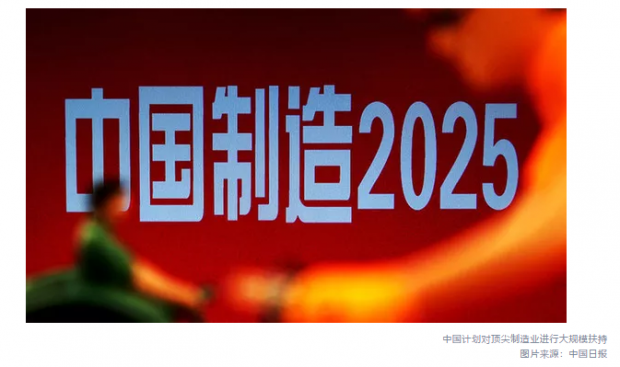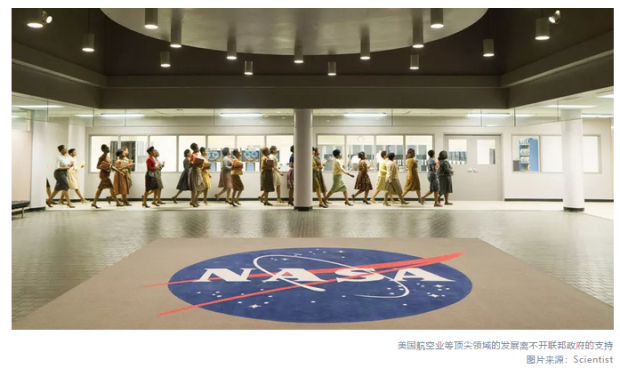编者按
7月18日,中国媒体证实,本应在7月16日出席在美国举行的世界空间科学大会分论坛的几名中国科学家,全部因为没有获得美国签证,而缺席会议。而就在一天前,7月17日,北京大学理学部主任、中国著名脑科学家饶毅公开发声,表示自己本应受美国国家科学基金会(NSF)的邀请,于7月23日和24日在华盛顿参加一个科学研讨会,但是因为签证被美国大使馆拒签,而无法赴美参加会议。
6月6日,美国副助理国务卿拉莫托斯基(Edward J. Ramotowski)表示:“我们已经向美国使领馆发布一些额外检查的指示,以处理在某些敏感领域从事研究的某些中国人”他还说,对某些高度敏感领域、由外国政府推荐的中国公民加强(签证)筛选。新指导适用于中国研究生,以及其他一些可能参与类似学习或工作的中国公民。美联社曾援引一名美国官员的话说,高度敏感领域都是北京宣布的《中国制造2025》计划中的重要行业。
美国政府收紧针对中国科研人员的签证政策显然是针对《中国制造2025》。然而,黄亚生教授早在5月就在公众号发文《中国制造2025》本应是美国的又一个“斯普特尼克(Sputnik)”时刻指出,应对《中国制造2025》,美国应该做的是加强自身科研经费投入和扶持力度,进行科技领域的公平竞争。《纽约时报》专栏作家Farhad Manjoo在7月18日援引了黄亚生教授的观点。公众号小编在这里把Farhad Manjoo的文章分享给大家。
本文转载自《纽约时报》。
《纽约时报》专栏作家Farhad Manjoo在7月18日发表文章"How to Combat China’s Rise in Tech: Federal Spending, Not Tariffs"。(纽约时报中文网翻译为“对抗中国的高科技野心,美国也需要“卫星时刻”)
文章援引了黄亚生教授早前发在个人公众号“亚生看G2”的文章《中国制造2025》本应是美国的又一个“斯普特尼克(Sputnik)”时刻的主要观点,即美国没有把中国科技崛起转化为一种公平竞争的动力,加大联邦投入,而却在大打贸易战,实在是在浪费机会。
以下为Farhad Manjoo文章原文:
At the heart of the trade war between the United States and China lies a profound and unsettling question: Who should control the key technologies that will rule tomorrow?
美国和中国贸易战,其核心是一个深刻且令人不安的问题:谁将控制明天的关键技术?
It is unsettling because, right now, the trade war offers a dead-end choice. On one side, a handful of gigantic American corporations look destined to become the key players in artificial intelligence, quantum computing, and advanced manufacturing and energy technologies. Or it could be a slightly larger handful of gigantic American and Chinese corporations, with healthy input from the Chinese government.
这令人不安,原因是现在的贸易战提供不了答案。或是几家美国大公司注定成为人工智能、量子计算和尖端制造业及能源技术的关键玩家,抑或是更多几家美国和中国公司,原因是中国政府的有益投入。

These advances could alter everything about how we live and work. Shouldn’t some other entity, like maybe a democratically elected government, have some input in their rollout?
这些进步会改变我们一切生活和工作方式。难道某些实体,例如民选政府,不该有所投入吗?
Here’s a crazy idea. The United States could outline a plan for and put money behind an alternative vision for the global technology industry. If executed carefully, such a plan could stimulate wider competition in tech, and allow for broader economic and social gains. Perhaps a whole set of new companies, rather than just the giants you’re used to, could plan a role in the future.
这是一个疯狂的想法。美国应该为一个全球技术产业的不同愿景制定计划并进行投资。如果执行得当,这种计划可以引发科技业更广泛的竞争,获得更多的经济和社会收益。可能有一大群新公司而不仅是现有的巨头,能在未来发挥角色。
Does this sound un-American? It shouldn’t. Not long ago, when Americans faced the possibility of being left behind by other countries’ advancing tech, the federal government stepped in with nearly endless resources to stimulate the creation of vast new industries.
这听起来不怎么美国吗?并非如此。不久前,当美国发现自己可能被其他国家的先进技术超越时,联邦政府动用了一切资源激发大量新产业的出现。
Thanks to government funding, we got the nuclear industry, the space program, the aviation industry and the internet, which was initially sponsored by the Defense Department. Just about every key component in a smartphone, from the battery to GPS, is based on research first done for the American government. It’s not an understatement to say that, for better or worse, the American government invented the modern world.
由于政府资助,我们有了核工业、太空计划、航空业和互联网,它们最初是由国防部赞助的。从电池到GPS,智能手机中的几乎每个关键部件都是基于最早由美国政府进行的研究。毫不保守地说,无论好坏,是美国政府发明了现代世界。

But today in the United States, venture capitalists and multinational corporations lead the development of — and will own — tomorrow’s technologies. Meanwhile, the Chinese government is playing the role the United States once did. Over the past decade, China has pushed an aggressive series of plans meant to gain dominance in technological areas it considers crucial to the global economy.
但在今天的美国,风险资本家和跨国公司领导着未来技术的发展,并且还将拥有这些技术。与此同时,中国政府正在扮演美国曾经扮演的角色。在过去十年中,中国推出了一系列积极的计划,希望在它认为对全球经济至关重要的技术领域内获得主导地位。
One program, Made in China 2025, outlines a road map for China to become a world leader in advanced manufacturing (things like robotics, aircraft and machine tools). Another plan calls for China to achieve dominance in artificial intelligence. Based on similar initiatives, the Chinese have already seen big wins.
《中国制造2025》项目规划了中国成为世界先进制造业领袖的路线图,例如机器人、飞机和机器工具等。另一项计划呼吁中国在人工智能领域实现主导。在这些类似规划下,中国已经获得了巨大成功。
Americans invented the modern solar power industry, but thanks to Chinese government intervention, China’s solar industry leads the world. So does its high-speed rail system.
美国人发明了现代太阳能产业,但由于中国政府的干预,中国的太阳能产业目前已在世界领先。它的高铁系统也是如此。
The Trump administration objects to China’s tech visions. It has cited Chinese government support for tech as a primary reason for imposing tariffs on Chinese goods. But its objections only put the disconnect in stark relief. If the United States is worried that the Chinese will win the future because they’re actually spending money to win the future, why aren’t we doing the same?
特朗普政府反对中国的技术愿景,他将中国政府支持技术作为对中国产品征收关税的一个主要理由。可这种抗议更突显了这种脱节。如果美国担心中国因为花了钱所以赢得未来,美国为什么不花呢?
“It is a waste that we are not using the rise of China as a galvanizing cry to invest more in science and technology in America,” said Yasheng Huang, an economist who studies Chinese politics and business at the Massachusetts Institute of Technology’s Sloan School of Management.
“我们并没有把中国的崛起作为一种激励的呐喊,要求美国对科技进行更多投入,这是在浪费机会,”麻省理工学院斯隆管理学院研究中国政治的经济学家黄亚生说。
He has argued that rather than imposing tariffs to respond to programs like Made in China 2025, Americans should respond as we did in 1957, when we sharply increased government spending on science after the Soviet Union launched the world’s first man-made satellite, Sputnik 1.
他认为,为了应对《中国制造2025》这样的计划,美国应该像1957年苏联发射世界上第一颗人造卫星斯普特尼克一号的时候那样,大量增加政府在科学方面的开支,而不是通过征收关税。

You might argue that the modern world bears little resemblance to the Sputnik era. Today, we have vibrant tech industry. Amazon, Apple, Google, Facebook, Microsoft and lots of venture capitalists are already investing heavily in the future. Why should the government step in? But that is a shortsighted view.
你可能会说现代世界和第一颗人造卫星那个时代大不相同了。今天,我们有蓬勃的科技业。亚马逊、苹果、谷歌、脸书、微软和众多风险投资者,他们已经在大笔投资未来。可政府为什么就不行呢?这是一种短视。
Mr. Huang points out that the established tech industry is mainly funding the most immediately applicable technologies. “Life science and software get a lot of money,” he said.
黄先生指出,成功的科技业主要投资立即可以应用的技术。“生命科学和软件拿到很多钱,”他说。
More speculative technologies that don’t offer any obvious payoff aren’t as lucky. “Everything else is underfunded,” Mr. Huang said, noting that as a percentage of the overall economy, federal spending on research and development has fallen since the 1970s.
没有任何明显回报的更多试探性技术就没那么走运了。“所有一切都资金不足,”黄先生指出自上世纪七十年代以来,联邦政府研发支出占经济总量的比例一直在下降。
I reached out to Michael Kratsios, President Trump’s deputy assistant for technology policy, to ask about the role the president ascribes to public funding in the advancement of tech.
我联系特朗普技术政策副助理迈克尔·卡拉特西欧斯,询问总统怎么看政府投资在发展技术中的作用。
His office declined an interview, but a spokesman noted that the omnibus budget deal that Mr. Trump signed in March outlined a significant increase in federal spending on research and development.
卡拉特西欧斯办公室拒绝了采访,但一位发言人说,特朗普3月签署了一个包含多个项目的预算案,要大幅增加联邦政府对研发的投入。
That’s true: the deal called for the biggest increase in federal research spending since the Obama administration’s 2009 stimulus bill. It’s worth noting, though, that Mr. Trump signed the bill under duress — he tweeted that he would “NEVER sign another bill like this again” — and that in most areas the White House’s initially proposed budget called for far less.
没错,这是奥巴马政府2009年刺激法案以来最大规模的联邦研发支出增长。但请注意,特朗普被迫签署,他发推文说,自己“再也不会签署这种法案”了,在多数领域,白宫最初提议的预算都少了很多。

Other aspects of Mr. Trump’s agenda are putting American tech at a disadvantage, too. While China is investing in solar power, we’re propping up industries that are politically important to Mr. Trump, like coal and, perhaps soon, soybeans. Funding the past while your adversary invests in the future is probably not the best way to stay ahead economically.
特朗普其他议程也让美国科技业处于劣势。中国投资光伏,我们却支持政治上对特朗普很重要的产业,如煤炭,可能不久后还有大豆。你为过去投资,对手却为未来投资,这可能并非在经济上向前看的最好方式。
But beyond simply opening the spigot to more money, we should push the American government to create an alternative to China’s vision for tech dominance for another reason: It would be a way to develop a more accessible tech industry.
但不仅是要打开水龙头拿更多的钱,我们还应推动美国政府建立与技术主导愿景不同的方案,原因是这是发展更平等的科技业的一种方式。
One huge problem with today’s tech business is the unequal way it distributes its gains. Tech advances have created immense wealth, but much of the money has gone to just a small number of people clustered around two cities on the West Coast.
今天的科技产业中,一大问题是收益分配不平等。技术进步产生了巨大财富,但大部分钱都进了西海岸两个城市一小撮人的腰包。
Now — as we’re suddenly realizing the power that tech giants can exercise over politics, news, our psyches and other basic aspects of democracy — there’s a real question about whether they face any meaningful challenge to their rise.
现在,我们突然认识到科技巨头在影响政治、新闻、我们的思想和民主社会的其他重要因素,他们的崛起是否遭遇到任何真正的挑战,这是一个认真的问题。
Government spending can help there, too. When the government creates tech, its gains tend to be spread widely. The internet is the open system it is today because it was sponsored by the government, not private telecom giants like AT&T. The GPS satellite system is available to anyone who wants to use it because taxpayers paid for it.
在这里,政府支出也可以有所用处。政府创造技术时,其收益会让人民共享。今天的互联网是一个开放系统,原因就在于它是政府投资的,而不是AT&T这样的私人电信巨头投资的。GPS卫星系统谁想用谁用,原因在于纳税人付了钱。
The same can be true of much of what we invent tomorrow. If the American government decided to plan for the future, rather than sit on the sideline as it came to pass, it could spur the development of the same kind of decentralized, open tech infrastructure that fostered today’s miracles.
未来的科技发明也是如此。如果美国政府决定为未来做计划,就不该袖手旁观,坐等机会飘过,而应该促进这种去中心化、开放的技术基础设施得以发展,正是这些设施创造了今天的奇迹。
Many of the technologies that will dominate the future could change life in substantial ways. Artificial intelligence and robotics could reshape labor markets and much else about how Americans work. Energy technologies might transform your city. Yet we really have no good way to prepare for these changes.
许多主导未来的技术都将在很多方面改变生活。人工智能和机器人将重造就业市场,以及美国人工作的方式。能源技术将改变我们的城市。但我们没有为这些变化做好准备。
For several decades, in the United States, we’ve been in the mode of reacting to technological change rather than anticipating and planning for it. As I’ve argued before, this puts us in a constant state of what the futurist Alvin Toffler called “future shock” — a state of ever-present unease about what technology has wrought, which is the truest emotion of 2018.
美国几十年来,我们都在对技术变革做出反应,而非预测技术变革并做出计划。我以前就说过,这让我们永远处在未来学家艾尔文·托夫勒所说的“未来冲击”之中,对技术带来的变化永远感到不适,这正是2018年的真实情感。

A federal plan to win this or that industry isn’t guaranteed to work. But at least it will prompt us, as a country, to think about what’s coming.
一项去赢得这个产业或那个产业的联邦计划并不保证奏效。但至少会促使我们作为一个国家去思考未来。
文 | 纽约时报专栏作家Farhad Manjoo
中文翻译来自纽约时报中文网和微信公众号“英文联播”
本文转载自《纽约时报》,转载请注明出处。
本文检索关键词:中国制造2025,特朗普,斯普特尼克1号
声明:本文不是学术论文,在表述和数据引用方面可能会有各种各样的误差。欢迎读者指正。
0
推荐




 京公网安备 11010502034662号
京公网安备 11010502034662号 